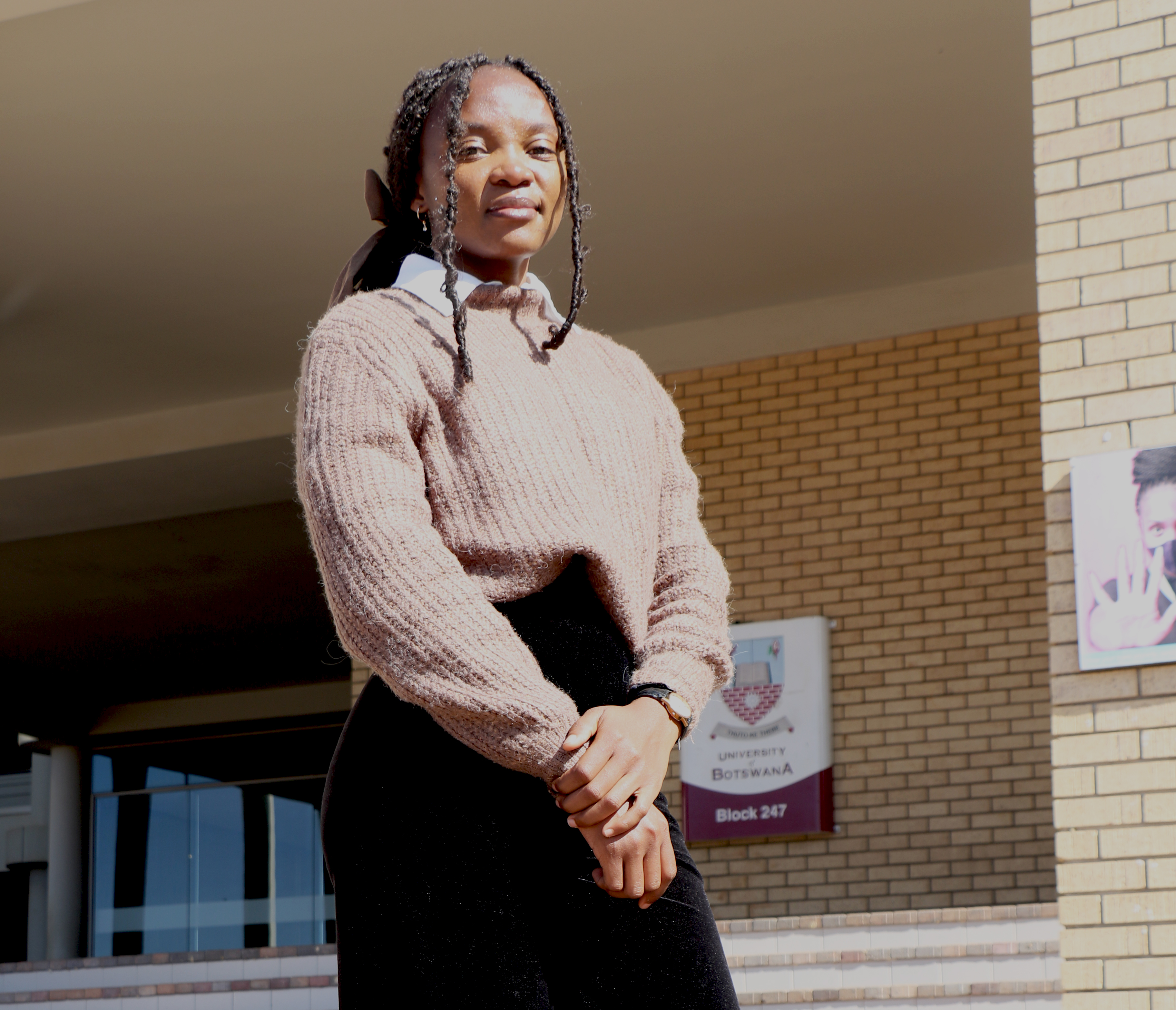How a Future Educator is Breaking Barriers for Children with Disabilities
 “Yolanda, I can do it!” shouted a young boy as he proudly fastened his shirt after weeks of struggling with fine motor skills. Another day, she unfolded a letter that read, “Thank you for treating us equally, even with our differences.”
“Yolanda, I can do it!” shouted a young boy as he proudly fastened his shirt after weeks of struggling with fine motor skills. Another day, she unfolded a letter that read, “Thank you for treating us equally, even with our differences.”
For Namile Yolanda Gama, a final-year Special Education student at the University of Botswana, moments like these are the heartbeat of her journey. They are reminders that every child, no matter their challenges, has the potential to thrive when given patience, support and dignity.
Originally from Eswatini, Yolanda is specialising in Intellectual and Developmental Disabilities (IDD), a path inspired by her niece who was born with cerebral palsy. “When we lived in South Africa, my niece attended school and blossomed. Her speech improved, her love for music grew,” Yolanda recalls. “But when the family moved back to Eswatini, she had to stop school because of the lack of resources. Watching her potential go untapped was heartbreaking. It was then I knew I wanted to be a voice and advocate for children like her.”
That determination brought her to Botswana where she has immersed herself in a transformative programme that combines theory with practice. From hands-on placements to community projects such as I Am Special Society, Yolanda has been working tirelessly to bring inclusion beyond classroom walls.
Her journey has been filled with challenges. In many schools, resources are scarce and assistive technologies like communication devices are too expensive. Instead of giving up, Yolanda and her peers improvised, creating simple picture books and home-made tools to help non-verbal learners express their needs. “It’s not about what we don’t have. It’s about making the most of what we do,” she says.
One of her proudest projects has been developing a programme to strengthen fine motor skills, balance and independence in learners with Down syndrome, cerebral palsy and ADHD. Through daily activities like buttoning, zipping, beading and coordinated movement exercises, the programme not only builds skills but also confidence. Thanks to donations and sponsors, she was able to leave behind teaching materials so that students could continue practising long after the workshops ended.
But Yolanda knows her work is not just about teaching. It is about changing perceptions. “Too often, special education is undervalued or misunderstood. People see the disability before they see the child. But these learners have abilities, talents and dreams. They just need the right support.”
Her ultimate dream is to return to Eswatini and establish assessment centres that will ensure children with disabilities are properly supported. She envisions working with parents to help them recognise their children’s potential while pushing for policies that make inclusion a lived reality, not just a slogan.
For Yolanda, teaching special education is not a career, it is a calling. “Each learner is unique. Yes, the journey can be frustrating at times but the progress, no matter how small, is priceless. It’s not about perfection. It is about dignity, independence and hope,” she reckons.
As she prepares to graduate, Yolanda carries with her the voices of the children who taught her as much as she taught them - the boy who learned to button his shirt, the student who thanked her for treating them equally. They are the voices that fuel her determination to break barriers and prove that with compassion, no child should ever be left behind.